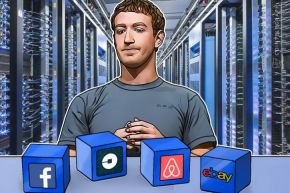Bloc kchains can be extended beyond the database paradigm towards a general application platform. These platforms work very differently. For example, they have shared virtualized databases, micropayments and consensus mechanisms, from common on-premise or on-cloud platforms that they have the potential to re-implement the named examples while not allowing one party to monopolize the platform.
kchains can be extended beyond the database paradigm towards a general application platform. These platforms work very differently. For example, they have shared virtualized databases, micropayments and consensus mechanisms, from common on-premise or on-cloud platforms that they have the potential to re-implement the named examples while not allowing one party to monopolize the platform.
The main Blockchains like Bitcoin are an example for a distributed autonomous organization. These are organizations centered around code as their ‘constitution’ and have as its main players users, developers, miners (those that render the infrastructure) and evangelists.
Source: Facebook, Uber, Airbnb, eBay: How Blockchain Can Break Data Monopolists
